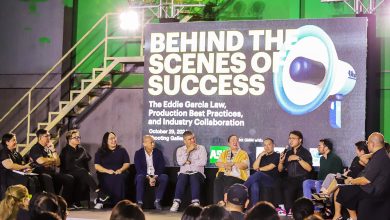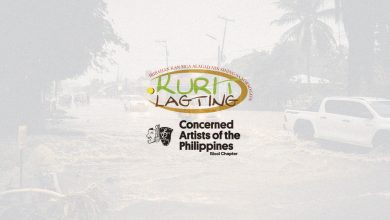MANILA, PHILIPPINES – You may have heard this a million times already–plastic pollution is one of the world’s most pressing issues, posing great risks to human lives for generations to come.
But what needs to be highlighted, really, is how we can be part of the solution.
In true bayanihan fashion, WWF-Philippines approaches plastic pollution through a collaborative effort. WWF’s Plastic Smart Cities (PSC) initiative works with women, youth, businesses, local governments and policymakers, and other actors across the globe to ensure a world where plastic waste no longer leaks into our environment by 2030.
In the recently released PSC national yearender video, WWF-Philippines highlights this important message by featuring the local sites in the country namely Donsol in Sorsogon, Island Garden City of Samal (IGACOS), San Isidro in Davao Oriental, Davao City and Manila City and their contributions to changing our future.
“Bilang mga babae, napakalaki ng partisipasyon natin para mabawasan ang polusyon, lalong lalo na ang mga plastics sa ating kapaligiran. Gumagamit kami ng mga used styro, used fishnets, yun ay ginugupit at nirerecycle namin para mailagay sa mga products and then maibenta sya. [As women, we have a huge contribution in addressing plastic pollution in our environment. We use plastics like discarded styrofoams, fishnets, and we cut those so we could put them in products that we could sell],” KALIPI member Michelle Basco shares about their women-led social enterprise.
KALIPI, a women-led social enterprise in Donsol, shows how they recycle plastic wastes such as used styro, fishnets, and plastic wraps to turn them into profitable products.
Kalipunan ng Liping Pilipina (KALIPI) in Donsol leads their community in recycling plastic wastes and turning them into sellable products and souvenirs. WWF-Philippines also works with other women organizations and women-led businesses such as Toril Kalambuan Association and Women’s Bright in Davao City, Hugpong Manggagama sa Isla (HUGMAI) in IGACOS, and San Isidro Municipal Women’s Association (SIMWA) in San Isidro, Davao Oriental.
Local government units expressed their commitment and continuous support to WWF-Philippines and PSC.
“Dapat gyud magtinabangay kay ang kinaiyahan man gud dili lang kay owned by one LGU. It’s a shared responsibility sa matag-usa. [We should work together because the environment is not just under one LGU, it is a shared responsibility for everyone],” says Lludeza M. Quesada from Island Garden City of Samal’s City Investment and Tourism Office.
In the video are Manila City Mayor Isko Moreno, San Isidro Mayor Justina Buenviaje-Yu, Donsol Mayor Josephine Alcantara-Cruz, and Davao City Councilor Diosdado Mahipus, Jr as well.
As the year closes, Plastic Smart Cities continues to encourage more cities and municipalities to join the movement and commit to having no plastics in nature. In the words of WWF-Philippines Executive Director Katherine Custodio, we should look forward to all sectors doing their part to regenerate nature.
With cities rapidly increasing their population densities to account for two-thirds of the global population by 2050, they must also continue to adopt smart and circular solutions to improve solid waste management. On plastic, this means preventing, minimizing and managing plastic, both as a resource, and as a global threat to our oceans.
As we approach 2022, our call is to start the new year with the commitment to contribute to the vision of having no plastics in nature by 2030. This isn’t just a commitment to the environment but to human life as well.
To learn more about what we do, visit: https://wwf.org.ph/what-we-do/plastics/
Neal Igan Roxas is a Communications Specialist under WWF-Philippines’ No Plastics in Nature initiative.









